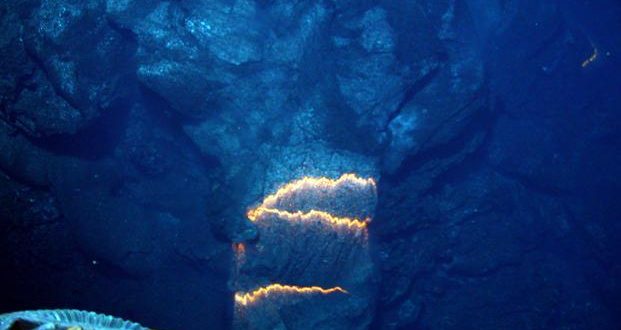Researchers might have found the common ancestor that unites all life on Earth – and it’s called Luca.
The researchers started by looking at nearly 2000 genes of modern microbes, exploring the traces that have been passed down from the beginning of life on Earth. That meant that they could explore the bits that appeared to be able to be tracked down to the common ancestor – and use their characteristics to assemble a picture of LUCA itself.
In the study, which was published Monday in the journal Nature Microbiology, William Martin from the University of Dusseldorf in Germany and his colleagues reveal that life on Earth likely formed around hydrothermal vents, such as those found near undersea volcanoes, where heated water that was rich in hydrogen, carbon dioxide, and minerals could be found.
While the exact chemical events that resulted in the origin of life on Earth will likely never be fully understood, Science explained that some of the earliest living organisms have left behind fragments of themselves in the genes passed on to their descendants. Martin’s team of researchers analyzed these genes as they hunted for clues pertaining to the daily life of our last universal common ancestor – LUCA, for short.
They found that LUCA was likely a microbe that fed on hydrogen gas and lived in an oxygen-free environment, indicating that it was probably born in hydrothermal vents. They also discovered that it possessed 355 proteins which are now nearly universally found in the bacteria and archaea that eventually developed from it, but as New Scientist pointed out, it was also quite different in many ways.
Organism was unable to produce its own energy; relied on its surroundings for help
Martin’s team analyzed the genomes of 1,800 bacteria and 130 archaea, the website explained, and their analysis revealed that, unlike those organisms, LUCA most likely was unable to pump ions across membranes to create an electrochemical gradient in order to produce the energy-rich molecule ATP. Rather, it harnessed an existing gradient in order to produce ATP.
This discovery would seem to support the notion that the earliest lifeforms obtained their energy from the natural gradient that exists between vent water and seawater, and only later evolved the ability to generate gradients on their own, New Scientist said. This also suggests that LUCA was forced to rely on these vents for their survival, only breaking away from them on two occasions: when the first archaea evolved, and then again when the earliest bacteria developed.
“We are seeing something for which there was previously no evidence. Just by asking the right questions of genome data, we were able to obtain some very interesting answers that also mesh well with what we know from geochemistry,” Martin told the Washington Post, adding, “I think that there’s a very direct link between geochemical processes, LUCA… and the first lineages of microorganisms that arose.”
While LUCA is the last known common ancestor to all living organisms on Earth, exactly how close it is to the beginnings of life remains unknown. Other scientists have suggested that it may have been preceded by other microbial life forms that have since died out. Martin told the Post that this was “possible, but I’m not sure how we would go about investigating any kind of question like that” without any fossil evidence or genetic link to pre-LUCA organisms. “The goal of evolutionary biology,” he added, “is to understand the history of the organisms that we know. When we’re done with that we can worry about the ones we can imagine.”
Agencies/Canadajournal
 Canada Journal – News of the World Articles and videos to bring you the biggest Canadian news stories from across the country every day
Canada Journal – News of the World Articles and videos to bring you the biggest Canadian news stories from across the country every day



